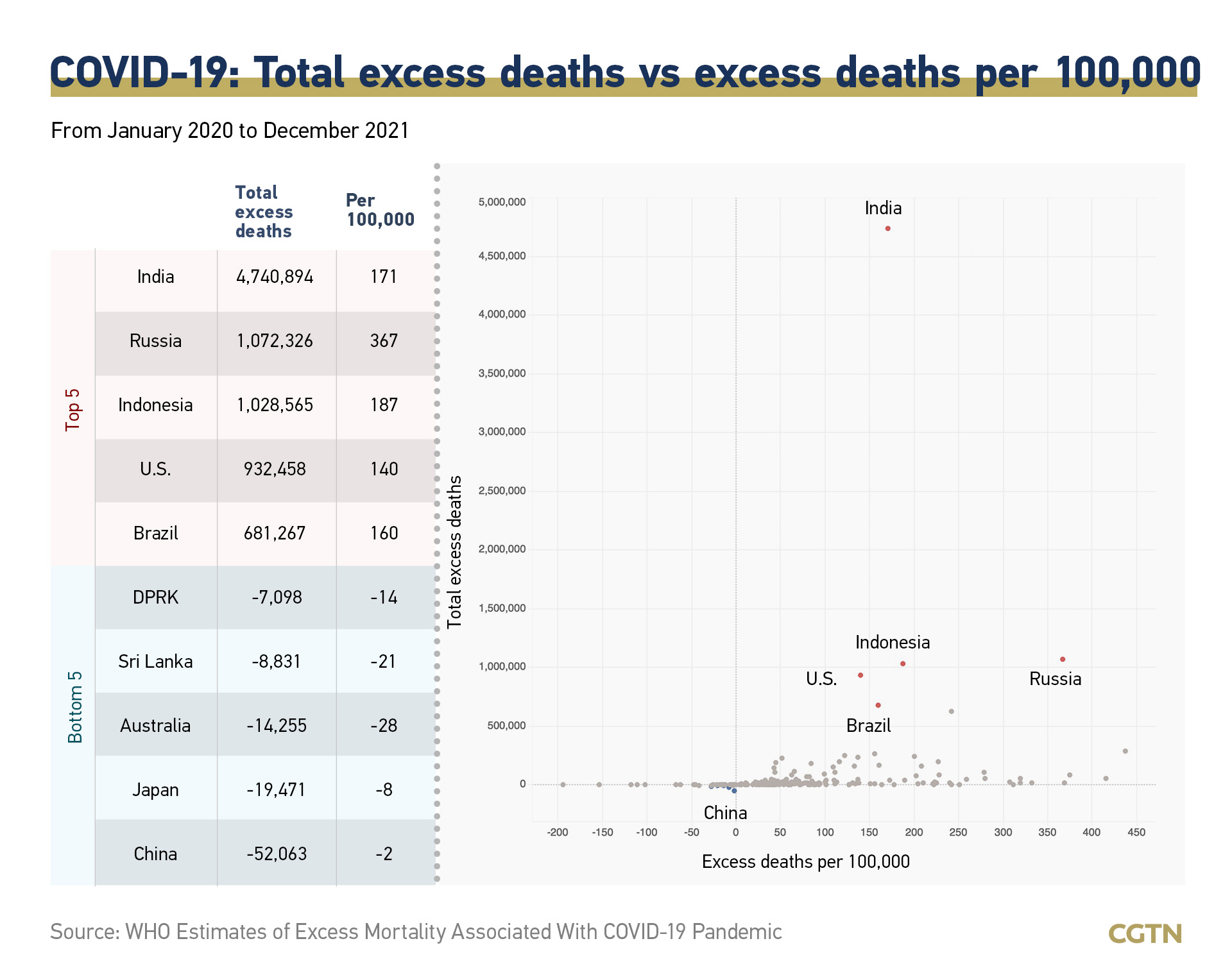
Residents walk in a park as 41 parks reopen in Minhang District, east China's Shanghai Municipality, May 27, 2022. /CFP
Residents walk in a park as 41 parks reopen in Minhang District, east China's Shanghai Municipality, May 27, 2022. /CFP
China's COVID-19 control measures may have prevented more than 50,000 people from dying of the pandemic, according to data compiled by the World Health Organization (WHO).
The data, released by WHO in May, listed numbers of "global excess deaths" related directly or indirectly to COVID-19 from the start of 2020 to end of 2021, among which China's accumulated number is below zero, meaning China could have lost more people if the control measures were not taken.
The mean number for accumulated excess deaths in China is minus 52,063, the lowest among all 194 countries listed in the WHO dataset.

WHO said the numbers were calculated based on the all-cause death number in a region, be it reported or projected, minus the number of deaths that would have been expected if COVID never happened.
The number not only includes deaths caused directly by COVID-19, but also includes indirect deaths resulted from "the wider impact of the pandemic on health systems and society," said the WHO on its website.
WHO said the number can provide "a more comprehensive understanding of the impact of COVID-19 beyond the number of COVID-19 deaths reported by countries," and can "reveal a picture of its full impact and burden on countries, health systems and individuals."
Other countries scored a big minus number include Japan, Australia, Sri Lanka and the DPRK, which also could have prevented thousands from dying of COVID-related social impacts.
Countries with large number of excess deaths include India, Russia, Indonesia, the U.S. and Brazil.
(Liu Wei and Zhao Chenchen also contributed to the story.)

